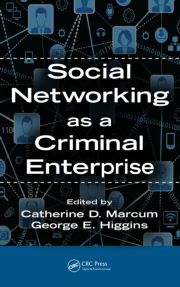Accreditation: Does it Matter if my School of Choice is Not Accredited?
There is little doubt that choosing a college can be overwhelming even for the savviest of us. Concerns about tuition, location, programs offered, and one thousand and one other things swirl around in your head as you try to make your way toward a decision. Still, there is one important item, often overlooked or not entirely understood, that you should have on your checklist when considering which institution is best for you, and that is accreditation. So, YES!, accreditation really matters.
You don’t hear people talking too often about accreditation when discussing which college to attend; however, whether a college is accredited and the type of accreditation it holds have some of the most important implications of any criteria used in the school selection process.
Receiving and maintaining a certain type of accreditation means that the institution has gone through a thorough process of evaluation at all institutional levels and meets specific quality standards and criteria to ensure that students are receiving the intended education, as laid out by the accrediting body. Attending a school that is not accredited at all can mean leaving your education and your future up to chance. Schools that are not accredited are held to few or no standards or regulations.
Not all schools applying for regional or national accreditation meet the criteria to receive such accreditation. Some schools are not accredited because they are new and may be in the process of applying for accreditation. It is recommended that you thoroughly investigate before enrolling in a non-accredited school – call and ask if the institution is undergoing this process and when it expects to obtain accreditation – then decide whether you are still interested in attending (wiche.edu).
Before signing your admission application to a non-accredited college, here are a few things to consider in your decision-making process:
Credit transfer: Credits from a non-accredited institution will not be accepted for transfer to a regionally accredited school because non-accredited schools are not held to the same standard as regionally accredited schools (studentaid.ed.gov).
Cost (time/money): Earning a degree or certificate is hard work; it can take months or years to complete and often comes with a large financial investment. Getting a degree from a program that is not accredited can set a student back years and cost thousands of dollars, especially if that student goes on to work in a field that requires licensure and continuous professional development. This is by far the most serious of the potential consequences of attending a non-accredited institution.
Financial aid: Attending a non-accredited school also means that students will be ineligible for any government or military financial aid for tuition costs (studentaid.ed.gov). That can lead to large out-of-pocket expenses for the duration of the program and many years beyond completion.
Employment: Attending a non-accredited institution will make it much harder to use your degree to find a job after graduation (worldwidelearn.com). The job market today is more competitive than ever, and having a degree from a non-accredited school will put you behind everyone who has earned a degree from an accredited school. There is a general perception that schools that meet accreditation standards produce better professionals who can become great candidates for their jobs. Employing someone with a degree from a school that is not held to any academic standards is a risky and potentially costly move. Employers generally know what they are getting when they hire someone who has graduated from an accredited school because the rules and metrics that must be met to obtain accreditation align with educational standards in higher education and across specific fields and industries.
Licensing: Depending on your field of study, it may be preferred or required to attend a school with an accredited program. Fields which call for taking a test and becoming licensed after earning your degree often require that you graduate not only from an accredited school, but also from an accredited program (Phillips, geteducated.com). Specialized accreditation indicates that a specific degree program (i.e. nursing, accounting) at a school lives up to certain standards of that field (Phillips, geteducated.com). Having a specialized accreditation does not give accreditation to the other programs in the college; however, having a program with specialized accreditation typically suggests that the entire school is accredited (wascsenior.org).
To avoid issues like these, future students should do extensive research on their schools of interest before they enroll, or better yet, ask an enrollment advisor whether the institution of their choice is accredited and what type of accreditation the institution has received or will receive.
The University of Louisville is accredited by the Commission on Colleges of the Southern Association of Colleges and Schools to award associate, bachelor, master, specialist, doctoral, and first-professional degrees (D.M.D., J.D., M.D.). See online programs available at UofL.
To learn more about types of accreditation for institutions, see our article comparing regional and national accreditation.
___
References
Phillips, V. (n.d.). What is Online College or University Accreditation? Get Educated. Retrieved from http://www.geteducated.com/college-degree-mills/203-what-is-online-college-accreditation
Things to Consider. Federal Student Aid. Retrieved from https://studentaid.ed.gov/prepare-for-college/choosing-schools/consider
Western Association of Schools and Colleges. Regional Accreditation. Retrieved from http://www.wascsenior.org/about/regionalaccreditation
Western Interstate Commission for Higher Education, WISCH (2010). Online Learning. Retrieved from http://www.wiche.edu/knowledge/14295
Why You Should Choose an Accredited College Degree. World Wide Learn. Retrieved from http://www.worldwidelearn.com/accreditation/importance-accreditation.htm


